

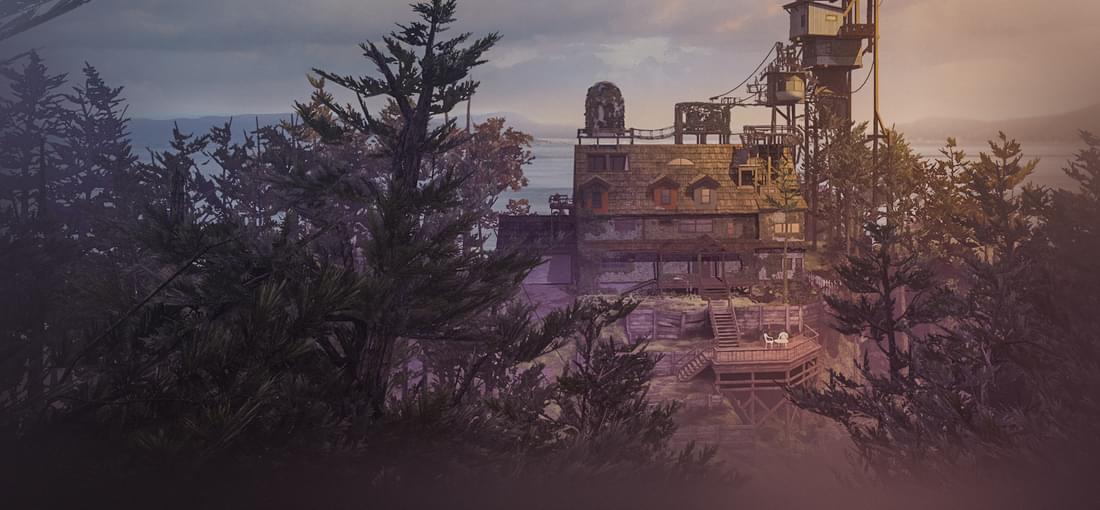
What Remains of Edith Finch (WREF) is another great entry into the genre of narrative driven exploration games. It stands with the better examples such as Gone Home, Tacoma and Firewatch. Its story tells of the individual and often horrific fates that many of Edith Finch's family members have met. While exploring the old and increasingly surreal house of the Finches, one stumbles upon letters or journal entries that then unfold into little vignettes, sort of mini games, that vary widely in tone. While itself having a narrative tone that hints at the existential horror of Lovecraft's work or the Vanishing of Ethan Carter to name a video game example, the vignettes themselves are at times horrific, colourful, poetic or fantastical. They change up the visual presentation as well as interaction with the game. And it is especially through its interactive design that the game manages to open up a tactile sense of its world, its house and its story. This is achieved by the player being able to see the body of Edith when looking down, seeing her hands and legs, while standing, walking, when crawling on all fours. Furthermore, interacting with the environment almost always demands more of you than a simple push of a button. You will need to drag the controller stick into the direction of where you want a door to open for example. These are very fine details of game design that I feel are the greatest strength of WREF and give you a real sense of who and where you are. While the game is beautifully presented, well written and performed, it is its smart game design that stays with me. Edith Finch is beautiful, but I feel like even though I connected to its place and character, its story did not speak to me as strongly as I wanted it to. This is perhaps more down to personal taste than anything else, and since I am nonetheless interested in the potential of narrative exploration in video games I can highly recommend WREF to whoever shares this curiosity.
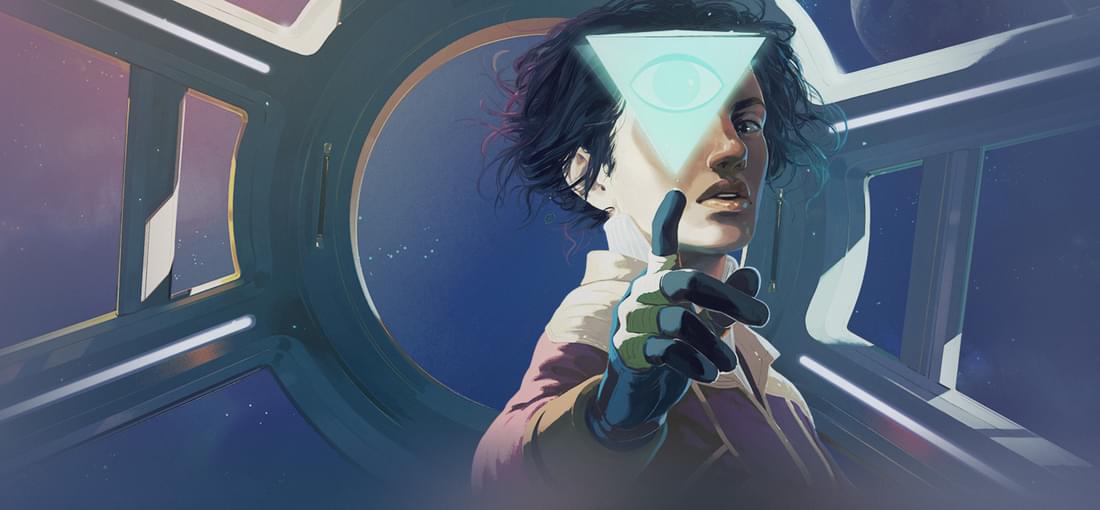
Tacoma, the follow-up game by Fullbright, the maker's of Gone Home, is a short sci-fi novella that pushes the genre of narrative exploration games and its standard to new heights. In Tacoma you are a freelance contractor send to the space station Tacoma to retrieve its AI core, all the while learning about what happened to its crew and how they faced a life-threatening catastrophe and its true cause. The game's main mechanic allows to see past conversations being played out in front of you in real time through an augmented reality system that records everything on the station. It enables you to see how conversations unfold, rewind them to find hints and follow it where it branches off for more information. It is a simple yet brilliant mechanic that immerses you into the plot and lets you see both its intimate characertisations of the diverse cast as well as hint at its grander themes of world building, such as the costs of privatising the exploration of space or what ethical problems arise with the treatment of AIs once they reach sentience. All this thrives due to the excellent, smart and subtle writing as well as the even more brilliant performances of its actors. The latter cannot be stressed enough when acting in video games too often is fraught with stereotypes and shallow ideas. The only short coming of Tacoma is that its final story arch is a bit rushed and falls short on developing the tremendous tension that Gone Home had for example. However, what Tacoma ultimately left me with was a wish to be able to spend more time in its world and the belief that video games can actually develop true literary value!
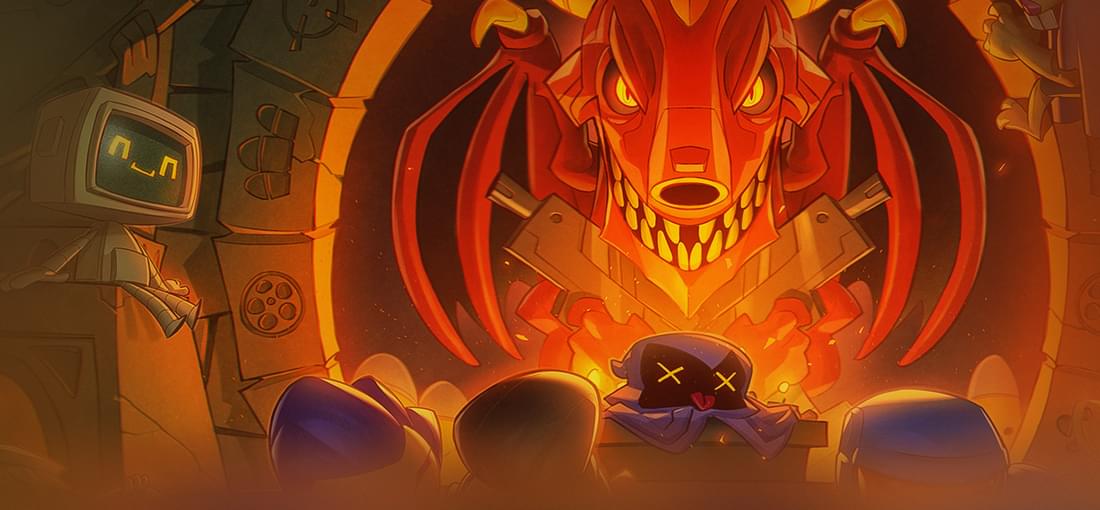
Enter the Gungeon (EtG) is a quirky little gem of a game that convinces with tight gameplay and a funky humour while it infuriates and gets you addicted in the same breath with its with merciless difficulty. EtG is a rouge-like dungeon crawler with twin stick shooting mechanics and a bullet-hell component that will require you to master your dodge roll as fast as you can. Or you won't live long. Scrap that, you won't live long anyways if you don't soon find a great gun to beat the increasingly harder, randomized dungeon floors and their respective bosses. In EtG you choose one of four gungoneers, troubled souls trying to retrieve from the gungeon the gun that can kill their past. On your way down you'll encounter a miscellany of weird opponents. There are cute but armed bullets, ghosts with Tommie guns and bouncing grenades. Not to speak of the fun and challenging boss battles with for example the Bullet King or the Ammoconda (yes, gun-related puns!). You'll also encounter NPCs that are equally if not even more weird. They'll sell items, give challenges or hints to hidden secrets. This humour obviously extends to the guns themselves and whereas there are some real world inspired ones as well as movie and game references, others are completely outrageous inventions such as the fish shooting barrels gun or the bundle of wands that turns enemies into chickens. What is truly amazing though is the progression system which gives a real sense of achievement despite your many failures. You'll continuously unlock new weapons, stores and even hidden characters along the way. All this is wrapped in a colourful and delightful pixel art style with some great and nuanced background music as well as bad-ass effects for some of the more extreme weaponry. I've put tons of hours into this game and, to my embarrassment, have not beaten it yet. However, the humour which had me laugh out loud many times is what softens my frustration and keeps me coming back. I love this game.
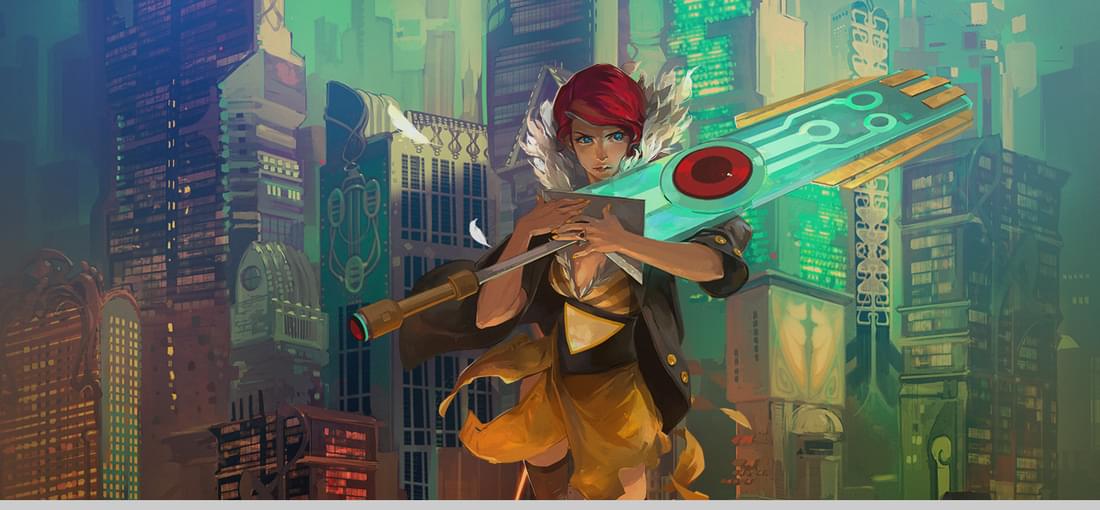
Transistor, the follow-up by the makers of Bastion is an achievement in atmosphere and style as well an interesting, if not always successful gameplay experiment. You are Red, a famous singer who has lost her voice having survived an attempt on her life. Your partner is not so lucky as his mind is stuck within the very sword that was used to try and kill you. Together you'll make your way through a futuristic city to find his murderers. While the city itself is under attack from an artificial life form that seems to be connected to ones you are seeking. And while the plot remains told in broad brush strokes it is the atmosphere that drives the game. The art style - a mixture of cyberpunk and art decor with bold, bright colours - and the choice of a modern jazz soundtrack come together fantastically. Gameplay experiments with a mixture of real time and turn based combat. You move in real time dodging attacks until you can stop time and meticulously plan out the next actions, stringing together powerful abilities into devastating combos. The possibility to combine abilities with each other in increasingly complex ways allows for an extraordinary degree of improvisation. Combined with great visual effects and animations this leads to a satisfying moment to moment combat. However the over abundance of options is also an issue. The game throws so many at you in such short time, while also withholding more complexity for later, that the first playthrough is not enough to master the system. I had a great time with Transistor- with its setting and vague story, its combat and visual presentation - but while I understand that the developers want to prolong the longevity of their game I also feel that the result is an imbalance in the relationship between presentation and mechanics. After I finished the relatively short story I simply didn't feel the urge to return but knew that I would thus miss out on the depth of an still evolving combat system.
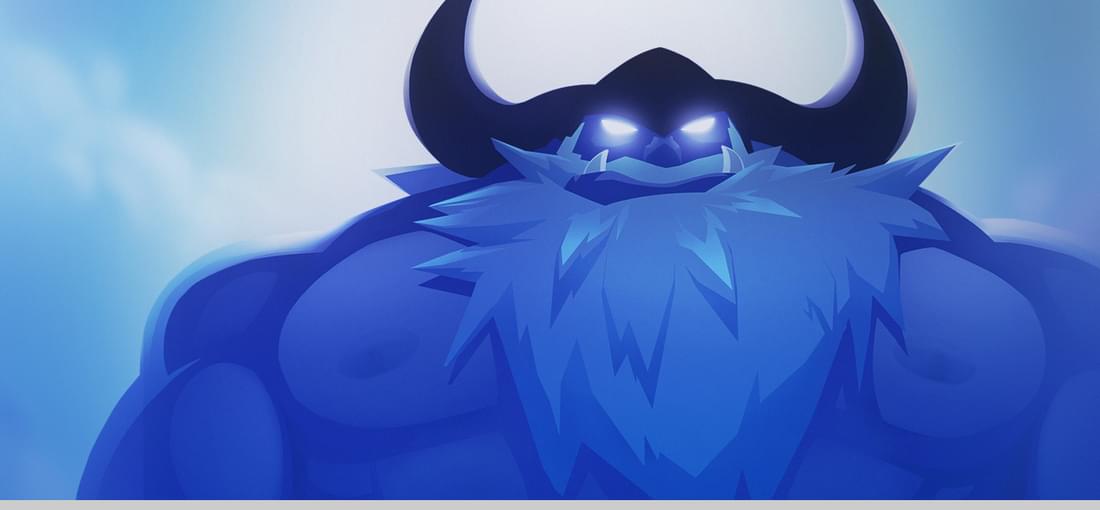
With the enticing theme of nordic mythology, a pretty hand-drawn art style and boss battles with huge giants Jotun has a promising set-up but ultimately fails to deliver. I went into Jotun hoping for a good dosage of nordic mythology but Jotun first and foremost tells the story of Thora, a viking warrior that is given another chance at reaching valhalla after having drowned in a ship accident. This story is told through sparse dialouge delivered in Islandic and most of the references to mythology are encountered as the places you will visit. You will make your way to the tree top down to the roots of Yggdrasil for example and while this is undeniably pretty I found the sparse text in fact too sparse to get me involved in either the character's journey nor the beautiful setting. This is also confirmed by the although stunningly drawn levels that basically feel empty. Exploring them isn't that fulfilling since it consists of finding not that well hidden upgrades and solving few not that difficult puzzles. While the story telling feels hollow and levels liveless, the controls as well fall short and feel rather stiff. Visual feedback and responsiveness in battle are unconvincing and leave the player floaty and unconnected to the world and her oponents. But the ultimate let-down of Jotun are the boss battles themselves. Claimed to be difficult I found myself beating the giants in 3-5 attempts and shockingly to me I beat two right on the first go. Furthermore I can't say that I found the designs of the giants particularly memorable or convincing in a game which gears itself towards boss battles. In the end I can't quite hide my disappointment in Jotun since on paper I should have more than liked it, but it lacks real impact for what it proposes and unfortunately remains flat and empty, basing too much on its looks and too little on its actual gameplay and story telling.
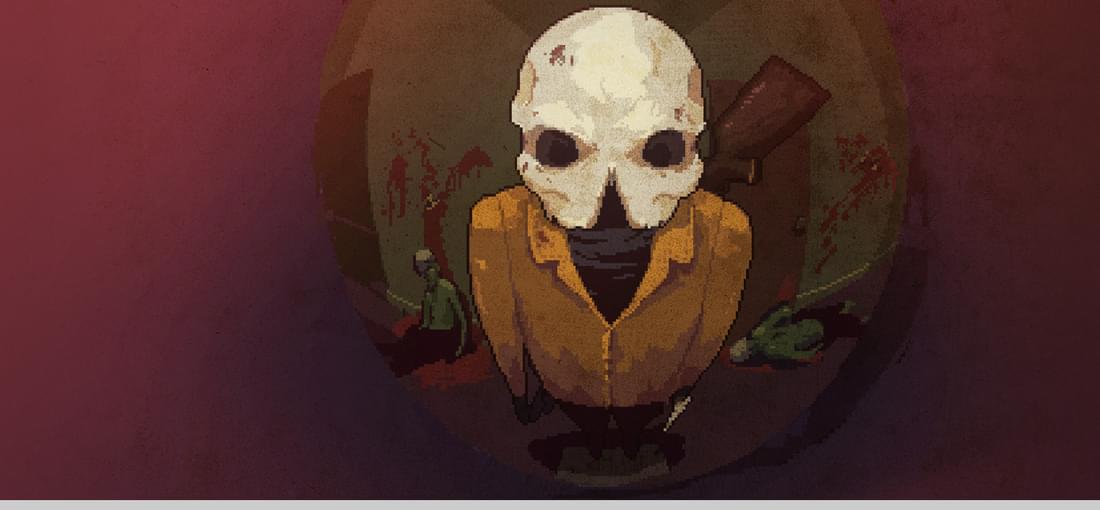
Deadbolt is a fantastic little indie gem, a smart and stylish stealth shooter, and while it is being compared to titles such as hotline miami or gunpoint this game is more than capable to stand on its own. In fact, Deadbolt manages to convince both through its challenging gameplay as well as its atmospheric presentation. In Deadbolt you play as the Grimreaper who taking orders from a talking fireplace ventures into the dark to kill zombies, vampires and many more nightmarish creatures. Organised in gangs they are working a mysterious drug enterprise and it is up to you to get to the bottom of this conspiracy of the undead. Each level in Deadbolt serves as a riddle that is to be solved through slow-paced meticulous planning which will both require trial and error as well as reflexive precision gun play. While its gameplay consists of luring enemies into gun fire by maneuvering around to get at them or by tricking them into the dark the gun play itself is fantastically rewarding. An enemy will fall to the ground with splatters of blood and brains flying all over marking the walls in spectacular fashion. Especially if you nailed that much needed headshot to conserve ammunition to finish off the last remaining zombies in the level. Deadbolt has a simple and stark pixel style which keeps its colour scheme simple but it is its imaginative enemy designs where the pixel art shines. The variations of zombies, vampires and other creatures are both smart and stylish. Which can also be said about Deadbolt's terrific soundtrack. Noteworthy are also the bits of writing that are found in mission briefings or as tape recordings that you collect from slain enemies. They give a quirky and interesting glimpse into the world from the perspective of the monsters. I thoroughly loved my time with the dark and gritty world that is Deadbolt and very much think this game is worth your time. It sure is, if not already the favourite, at least one of my favourite titles this year.
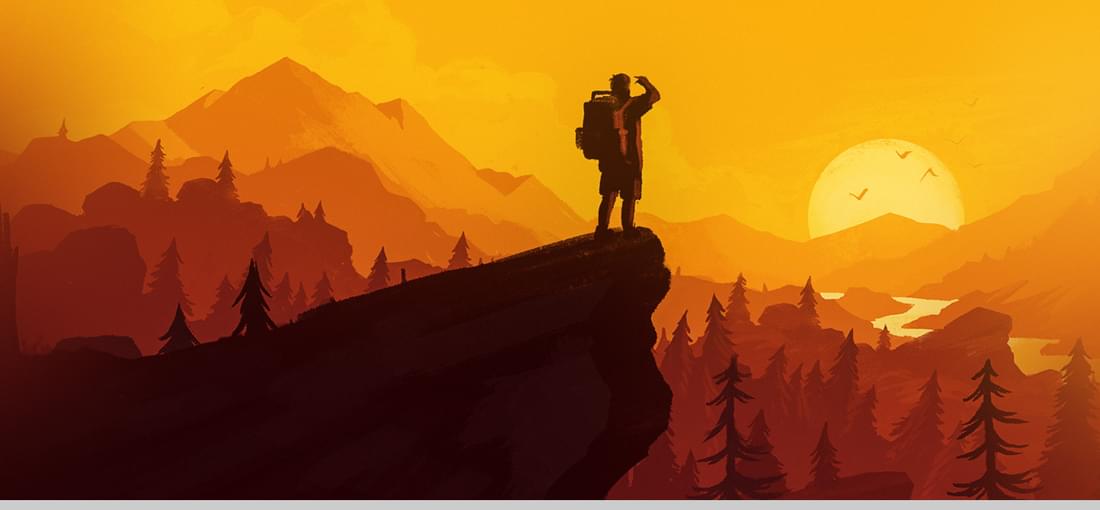
Firewatch is another entry in the steadily growing genre of narrative games. Here the focus is on experiencing a story which is more than often done by traversing and exploring an elaborate enviroment (thus the derogative term "walking simulators"). Firewatch thus joins ranks with titles such as The Stanley Parable, Gone Home, The Vanishing of Ethan Carter and many more. Firewatch's twist on the genre is that its main interactive mechanic is dialgoue choices during the protagonist's conversations. For you are Henry, a man trying to get away from his life by becoming a firewatch for the summer. Amidst isolation and guilt in this beautifully presented forest enviorment his only other human contact is Delilah, another firewatcher and his superior whom he talks to over the radio. Their relationship gradually grows close and more intimate before the story takes a turn to the more suspensful. While Firewatch is exectued superbly, its visual style and music are gorgeous, the voice acting simply fantastic, It falls short on its interactive promise. Dialogue choices don't seem to hold the promised importance nor consequences. It feels like the game wants to offer the player the ability to choose what kind of Henry one wants to be, only to realise that ultimately it is not one's story to tell. Firewatch's second short-coming is related to this and concerns its pacing. Whereas the narrative starts off slowly, taking time to evolve the relationship between the characters, it soon rushes its development along by skipping days and jumping ahead, leaving the player in a place of having to catch up with the character's development they are meant to embody. While the ending is great for its balance between drama and mundaneity, its build up seems rushed and perhaps overreaching just a bit too much. Overall Firewatch is an interesting and wonderfully presented entry in the evolving genre of narrative experiences. Anyone only vaguely interested in these should give it a try.
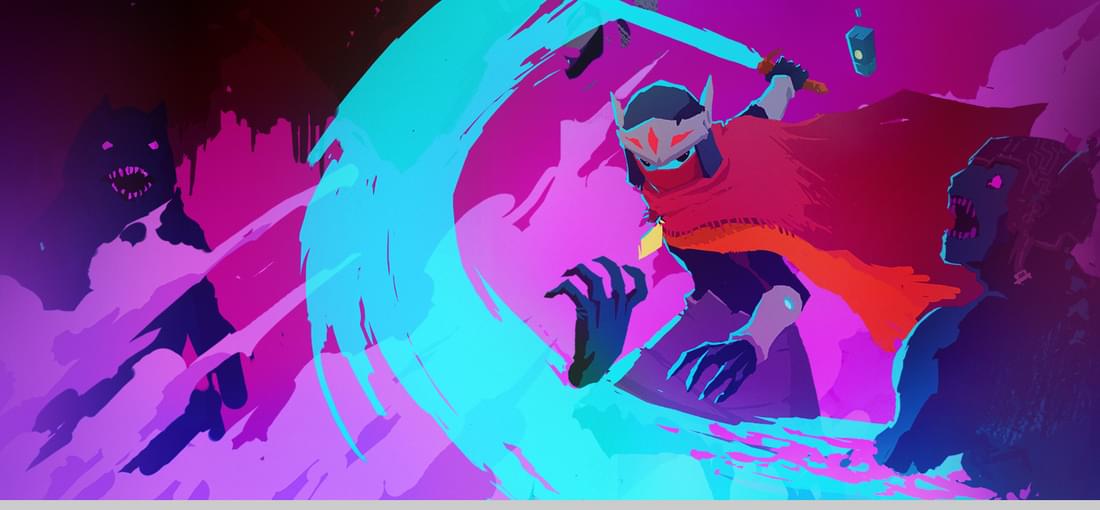
Much has been said already about Hyper Light Drifter's superbly crafted retro world and its tight and demanding gameplay. While I couldn't help but feel almost mistreated by the game's initial difficulty, I slowly grew to its challenges and its charms. None of its mechanics are easily mastered, nor are they ever explained straight forward, but the more it feels like a real accomplishment once the player comes to grip with them. Its strange and visually enchanting world offers many secrets to discover and mysteries that never fully resolve. But far from being a letdown, this invites the player to be richly involved and to fill in the gaps yourself. Having finished the game I can already feel myself wanting to come back for more. Hyper Light Drifter is already easily one of the best indie titles of the this year!